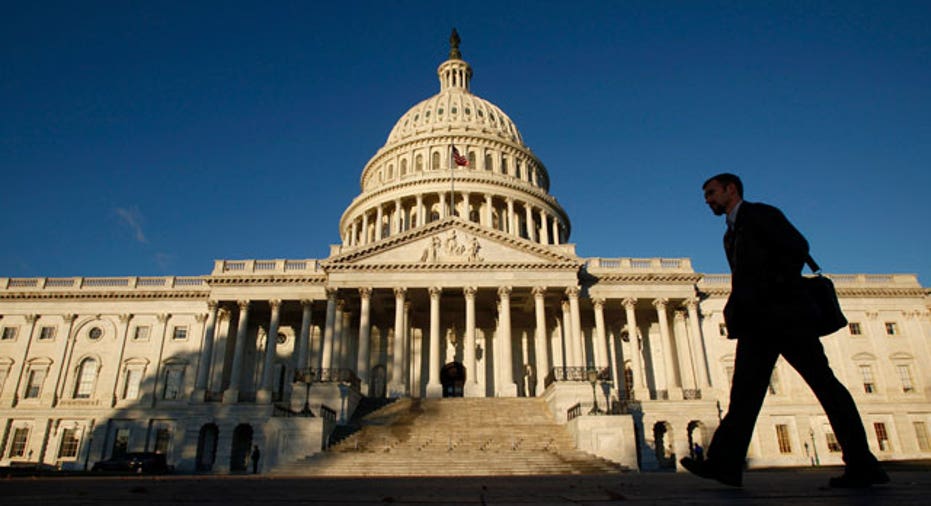Fiscal Cliff Legislation Passes Congress After High-Stakes Battle

The House of Representatives approved a Senate-passed bill late Tuesday night to avert some of the effects of the fiscal cliff, including painful spending cuts and some tax hikes.
In a vote of 257-167, the House approved the bill with bipartisan support, after an earlier procedural test vote passed with a wide margin, signaling early support for the legislation. The bill passed a Senate vote earlier in the day with an 89-8 margin.
President Obama praised Congressional action in a speech at the White House shortly following the conclusion of the House vote.
“Thanks to the votes of Democrats and Republicans in Congress, I will sign a law that raises taxes on the wealthiest 2% of Americans while preventing a middle-class tax hike that could have sent the economy back into recession and obviously had a severe impact on families all across America,” he said.
House Speaker John Boehner voted in favor of the legislation, but in a statement following the vote, he warned of future fiscal worries for the nation.
“The federal government has a spending problem that has led to a $16 trillion national debt that threatens our country’s future,” he said in the statement. “Without meaningful reform of entitlements, real spending controls, and a fairer, cleaner tax code, our debt will continue to grow, and our economy will continue to stumble.”
The legislation impacts a broad range of fiscal policy specifically focusing on taxes and spending.
Tax Policy
The bill delays sequestration – a series of automatic spending cuts – for just two months. The move buys lawmakers more time, but doesn’t provide a long-term solution as was hoped for at the onset of negotiations.
The deal also includes a tax increase on America’s high earners – an issue that was hotly contested in budget talks. Single filers making more than $400,000 and joint filers making more than $450,000 will see the tax rate on the top portion of their incomes increase to 39.6%. The rates will remain the same on individuals and joint filers earning incomes below those thresholds. Additionally, the bill provides a permanent fix to the alternative minimum tax. Taxes on capital gains and dividends for high earners also increase from 15% to 20% (plus a 3.8% surcharge from the Affordable Care Act).
In addition to increased tax rates and delayed sequestration, the Senate bill also allows the expiration of the temporary payroll tax cut, which would now require every American to pay an additional 2% in payroll taxes. Also included is an extension of current policy regarding the estate tax, but adding a $5 million exemption indexed for inflation and a 40% top rate.
Spending Policy
Under the bill, sequestration is delayed for two months, paid for by a reduction in the discretionary spending cap for 2013 and 2014. Also included is a one year extension of extended unemployment insurance benefits, and a one-year extension of the Food, Conservation and Energy Act of 2008 – also known as the farm bill. The latter will counteract antiquated legislation that economists have said could cause milk prices to surge to as much as $8 a gallon.
Debt Ceiling Fight Begins
The legislation failed to address the U.S. debt ceiling. Technically, the $16.4 trillion borrowing cap was hit late last year, but the Treasury Department is taking on "extraordinary measure" to create enough headroom to get through February. That means Congress will have a perilously small window to craft a deal, lest the U.S. be at risk of defaulting on its debt. The specter of a U.S. default last summer roiled financial markets and prompted Standard & Poor's to strip the country of its pristine ‘AAA’ credit rating.
Alan Simpson and Erskine Bowles weighed in on the fiscal fight, saying though the passed legislation is progress, the nation still has a long road ahead in 2013.
“Washington missed this magic moment to do something big to reduce the deficit, reform our tax code, and fix our entitlement programs. We have all known for over a year that this fiscal cliff was coming… Yet even after taking the Country to the brink of economic disaster, Washington still could not forge a common sense bipartisan consensus on a plan that stabilizes the debt.”
Market Reaction
Stocks in Asia and Australia rallied on the back of the passage of the fiscal cliff legislation in Congress. The Chinese Hang Seng soared nearly 2%, while Australia’s S&P/ASX 200 tacked on some 1.2%. Commodities posted a strong performance as well, with benchmark U.S. oil and gasoline contracts rising by close to 1%. U.S. stock-index futures were closed for the New Year’s holiday.
Still, sentiment wasn’t upbeat across the board. Nomura analyst Lewis Alexander issued a note to clients warning that the hard part is yet to come for Congress. In particular, the investment bank cited the potentially more challenging debt ceiling debate.
“In many ways the agreement that has just been reached only addresses the politically popular parts of the fiscal challenges,” Alexander wrote. “We expect businesses and consumers to remain cautious until these issues are resolved and the financial market will remain vulnerable.”
Indeed, Nomura said earlier in the week the fiscal cliff saga is likely to hit first-quarter economic growth.
Todd Schoenberger, managing partner at LandColt Capital, echoed those concerns. He said Wall Street’s reaction may be bullish in the short run, but is likely to lose stream quickly.
“Considering there are so many headwinds facing the economy, including the debt ceiling negotiation in 60 days, the smart money knows the bullish sentiment will be short-lived,” he wrote in an e-mail.
Rich Edson and Chad Pergram contributed reporting from Washington, D.C.



















